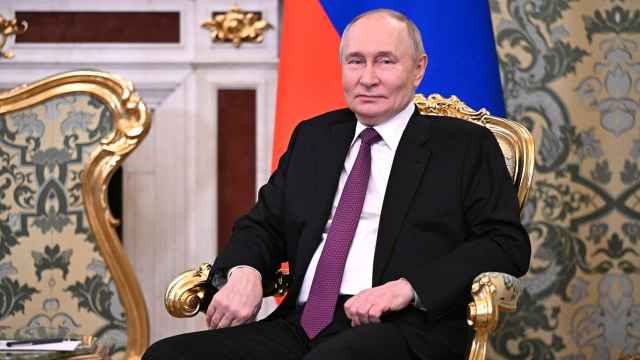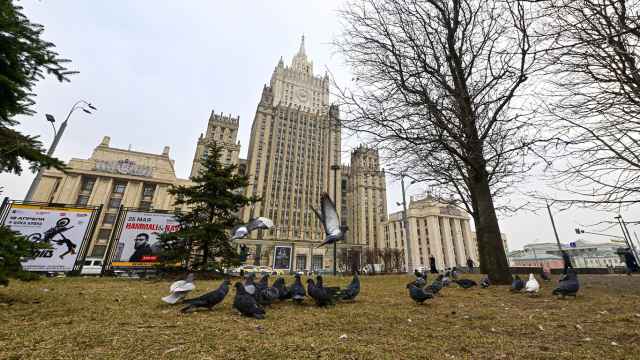President Vladimir Putin on Tuesday defended two controversial bills that criminalize libel and brand nongovernmental organizations "foreign agents," one day before they are to be heard in the State Duma.
Opposition leaders and human rights activists have criticized the proposed laws as backward steps and as part of a growing crackdown since Putin's return to the Kremlin in May.
But the ruling United Russia party has called them necessary and is expected to hear both bills in the Duma this Wednesday.
Putin told top human rights officials that the criticism was unfounded and that calling NGOs foreign agents when they receive foreign funding was normal, Interfax reported.
Putin was speaking during a with ombudsmen Mikhail Fedotov, Vladimir Lukin and Boris Titov. Fedotov, who heads the Kremlin's human rights council, told the President that the term "foreign agent" should be dropped.
But Putin disagreed, saying that many harsh-sounding words exist in official documents and legal codes that are practically never used in daily life. In a somewhat strange comparison, he said tax law defines local residents as tax residents, but that no one had demanded to drop that definition.
"Such matters of emotion and taste are not the main point," he was quoted as saying.
He added that the bill would not restrict the work of NGOs because it contained no prohibitions.
Putin also said that another bill making libel a criminal offense was warranted but that lawmakers should soften it by removing the threat of prison sentences.
"Let's leave [the law] inside the Criminal Code, but we will ask deputies to do away with imprisonment," he said.
The bill, introduced by United Russia to the Duma last week, has been assailed by opposition leaders as overturning a liberal reform introduced by then-president Dmitry Medvedev last December. Medvedev, who is now Prime Minister and heads United Russia, has been silent on the proposal.
Boris Titov, who is the Kremlin's new ombudsman for the rights of businesses and entrepreneurs, defended the bill by saying that because libel will be a criminal offense, officials convicted of it will be barred from returning to state jobs.
Putin also promised that he would ask lawmakers to make further changes to both bills if necessary.
"If we see that these draft laws need changes, then I am ready to ask for the necessary amendments in my own name," he was quoted as saying.
A Message from The Moscow Times:
Dear readers,
We are facing unprecedented challenges. Russia's Prosecutor General's Office has designated The Moscow Times as an "undesirable" organization, criminalizing our work and putting our staff at risk of prosecution. This follows our earlier unjust labeling as a "foreign agent."
These actions are direct attempts to silence independent journalism in Russia. The authorities claim our work "discredits the decisions of the Russian leadership." We see things differently: we strive to provide accurate, unbiased reporting on Russia.
We, the journalists of The Moscow Times, refuse to be silenced. But to continue our work, we need your help.
Your support, no matter how small, makes a world of difference. If you can, please support us monthly starting from just $2. It's quick to set up, and every contribution makes a significant impact.
By supporting The Moscow Times, you're defending open, independent journalism in the face of repression. Thank you for standing with us.
Remind me later.





